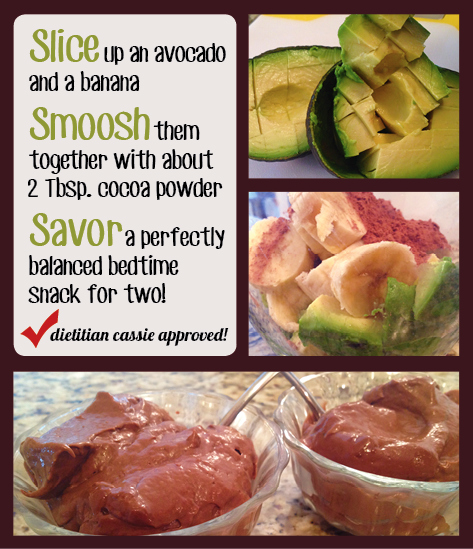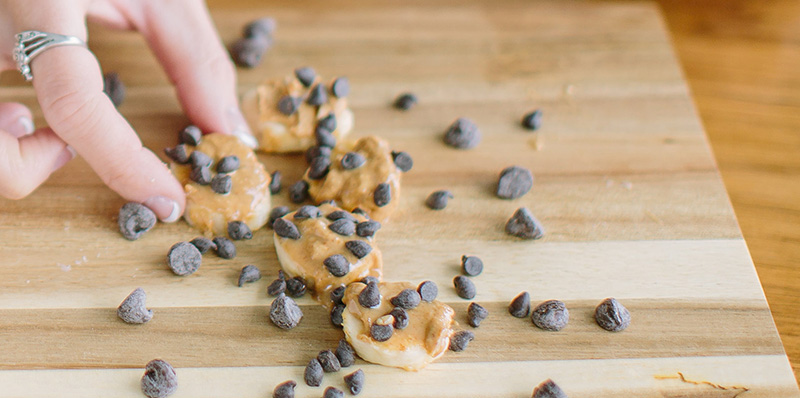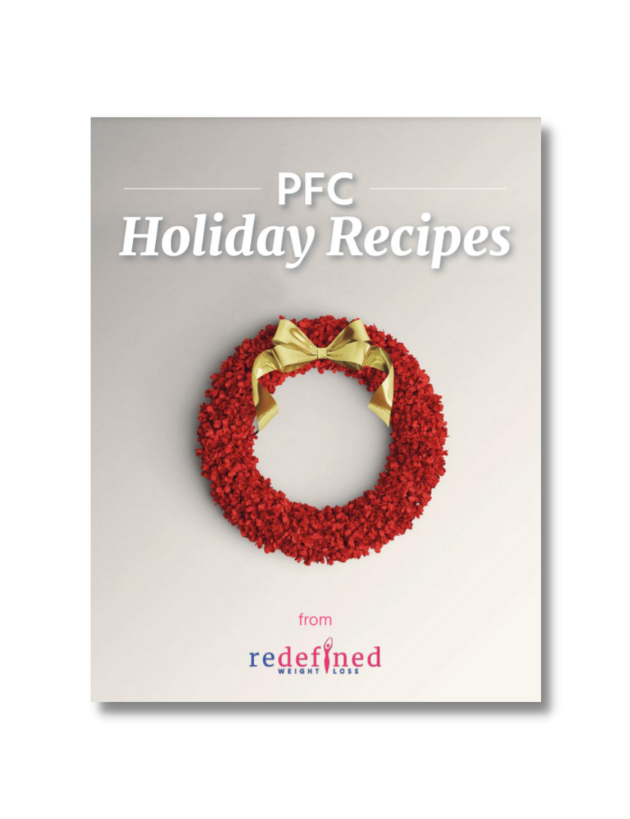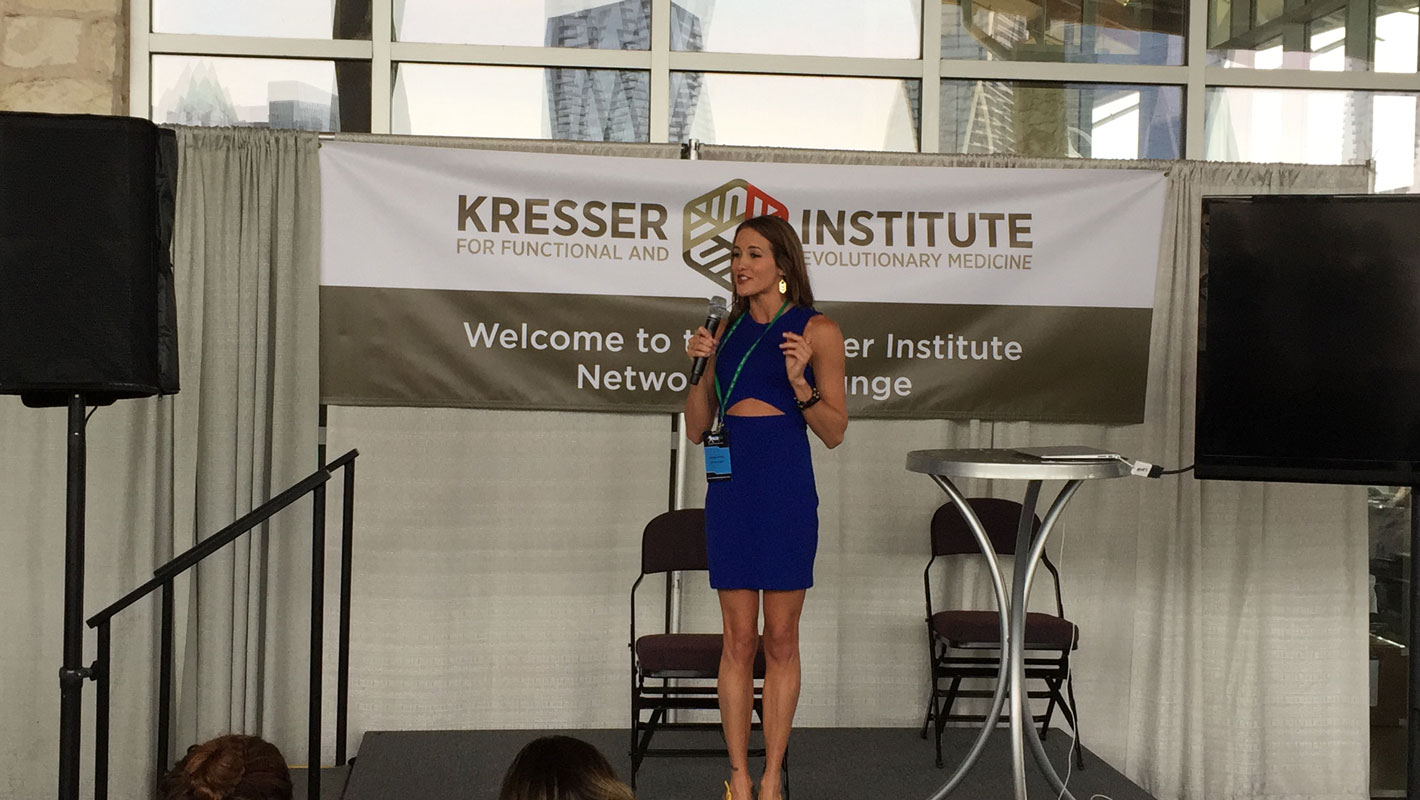Despite what you may have heard, it is not only “okay,” but actually VERY IMPORTANT to eat a bedtime snack! The common response to this is, “But I thought we weren’t supposed to eat after (insert time here)?” Let’s unravel this myth, by looking at the following three arguments:
1) Bedtime snacks provide unnecessary calories. If it were all about calories, then this argument may be legit, but…it’s not. So much more goes into metabolism than just calories; food quality and the type of macronutrients (P, F and C) consumed, timing of when you’re eating, hormone regulation, sleep, and the list goes on! The reason it’s important to eat a bedtime snack is because, in order to support your metabolism and therefore maintain your weight/promote weight loss, you need stable blood sugar levels. The reasoning for the combination of carbohydrate and fat before bed is because the carbs bring your blood sugar levels back up slightly (they’ve been falling since dinner or the time you last ate) and the fat slows the assimilation of the carbs into your blood stream, promoting nice stable blood sugar levels all night long. When blood sugar levels are stable, your fat BURNING hormone, glucagon, can do it’s awesome job (not to mention, the other sweet benefits of balanced blood sugar levels, including consistent energy levels, focus, stable moods, and no cravings just to name a few). If you take your blood sugar levels for a daily—maybe hourly—rollercoaster ride, you are creating an enviroment that your fat STORING hormone, insulin, THRIVES in! By following the Three-Three Rule that I outline in my article, Back to the Basics, you’re setting yourself up for success by promoting stable blood sugar levels all day long. Who wouldn’t want to create this same type of environment overnight? In other words, who doesn’t want to burn fat while they’re sleeping?
2) You don’t need energy before you sleep. This would be a fair argument if the only reason we were eating was to give us energy to walk and talk and do activities of daily living. But, we can’t overlook the enormous energy it takes for our body to burn fat! The problem with sleeping is that we are essentially “fasting.” (Also why it’s so important to “Break Your Fast” within 30 minutes to an hour of waking!) When you consume a balanced snack of fat and healthy carbohydrates before bed, you are stabilizing your blood sugar levels by bringing them back up a little bit instead of letting them continue dropping all night. Remember, what we want is a nice rolling hill of blood sugar levels all day long to keep insulin (your fat STORING hormone) at bay and promote the environment that glucagon (your fat BURNING hormone) does its work in! What we DON’T want is three huge spikes in our blood sugar levels (which is what happens when following the SAD (Standard American Diet) and eating 3 meals a day). So, we’re not eating for energy before we sleep, we’re eating to promote stable blood sugar levels, and in turn, success in several areas of your health.
3) Eating before bed makes it impossible to fall asleep. I would argue the exact opposite, under the conditions that you are eating the right snack in the right proportions. Sure, if you eat a big meal or a bowl of ice cream immediately before bed, I would be surprised if it didn’t interfere with your sleep! The bedtime snack I’m recommending is small, balanced and promotes good sleep by keeping those blood sugar levels stable. Furthermore, the reason the bedtime snack doesn’t include a protein source (note, this is the ONLY time I don’t recommend the usual PFC (Protein, Fat, Carb) is because for a lot of people, protein can interfere with sleep. Therefore, a snack of healthy fat and some carbs is the perfect snack for a good night’s rest. I suggest consuming your bedtime snack 15-30 minutes before bed so it has a little time to digest before your head hits the pillow. Now, if you implement the bedtime snack recommendation and you’re still having trouble falling or staying asleep, check out the supplement recommendations in this post.
So, what should you eat? Aim to eat a serving of carbohydrates and a serving of fat. This can be as simple as a handful of berries and a handful of nuts. Or, you can have some fun with it; sauté a pear in coconut oil and top with a tablespoon or so of heavy cream and a few walnuts. Serve a half cup of frozen berries with a couple tablespoons of heavy cream or a quarter cup of coconut milk poured over them (who needs sorbet!?). I like a cup of warm broccoli with a couple ounces of melted cheese or butter over the top. Or I’ll save half of my sweet potato from dinner and heat it up with a couple tablespoons of butter and a shake of cinnamon. How about half a banana with two tablespoons of almond butter? Or a cup of Simple Pumpkin Soup? Or the avo-banana smoosh pictured below. The options are endless. Just aim for a combination of healthy fat and carbs, 15-30 minutes before bed!

Now, go grab my BEST tips to BOOST your metabolism by clicking the pink button below!












Carbohydrates slightly increase your blood sugar levels — they’ve been dropping since you last ate (dinner?) so it’s important to get them up so they can stay stable during the night (which helps you burn fat for energy while you are sleeping!) The fat is important to support your metabolism and slow the assimilation of the carbs into your blood stream, which promotes stable blood sugar levels all night long!
Good question, Tracy! Fat alone does not have any effect on blood sugar levels (which is why it is GREAT!) but it also won’t bring them up from the drop that happened overnight. I don’t provide individual recommendations on my blog outside of a personal consultation so contact me if it’s something you want to further discuss!
Thank you for offering great nutritional knowledge. I absolutely love this article. Please keep the caring, honest advice coming 🙂
I love that you’re making this connection LeeAnn! Yes, everyone can benefit from eating to balance blood sugar levels — whether they have diabetes or don’t want to get diabetes!
Cheese does contain some protein, but it’s a larger source of fat, so I count it as a fat. I recommend counting foods as protein that are primarily a protein source such as meat, fish and eggs.
Is this recommendation good for children, too? I have an 8 yr. old and a 4 yr. old. We have always served bedtime snack, but it is: fruit, grains, & milk. Thanks!
Yes! I strongly recommend following these guidelines for bedtime snacks for children too 🙂
Thanks for all your advice, I really like your blog! I work the midnight shift and then work out in the morning before I go to bed….what would you suggest as a bedtime snack that also fulfills post-workout nutrition needs? Would a protein shake be a good idea?
You’re welcome and thank you! Yes, then you could do a high quality protein powder (such as this one http://www.dietitiancassie.com/naturalprotein ) but if you have trouble sleeping then I recommend decreasing the amount of protein you have before sleeping.
I’m trying to GAIN weight after an illness. I wake nearly every morning around 4 am. Any suggestions on a dairy free bedtime snack?
Most mornings I’m not hungry. I like to eat when I am hungry. Sometimes not till 10:00 or 11:00am. Are you not a supporter of intermittent fasting?
Yes! Another reason to eat 🙂
how about a little bit of psyllium fibers along with the snack?
Or fiber from real veggies and fruit works too 🙂
Great question! For our clients (and from my own personal experience) we have found that the energy we get from protein can keep many people awake at night, and sleep is just too darn important to sacrifice. That said, there’s an exception to every rule! And not everyone is affected this way by protein. If we have an athlete who lifts/does an intense workout in the evening, it’s not a bad idea to consume protein before bed as long as it doesn’t interfere with their sleep. And you’re a sports dietitian, so it would make sense that you’d want to recommend protein for tissue and muscle recovery 🙂 Again, it’s completely individualized and not a one-size-fits-all solution. What I post on this blog is what works for the majority of the clients we work with 🙂
Wow! this is new thinking for me. I just googled sweet potato as a bedtime snack… am eating it with coconut oil. After reading this, I then remembered that while I was losing 20 lbs a couple years ago, I had eaten fruit & nuts just before bedtime each night… not purposefully but by chance as I was very busy in the evenings and wanted to have something before going to sleep. Little did I know just what a good thing I was doing for myself! I intend to repeat the practice.
What if my dinner is only 1 to 2 hours from my bed time Do i need a snack? How much time is good to have your dinner before bed time?
It really depends on a lot of things: how well you sleep, what your goals are, how much you eat at dinner time and how well you balance your blood sugar levels during the day. Feel free to set up an appointment (available in 10 minute increments) to get individualized advice! 🙂 http://www.dietitiancassie.com/contactdc/
Love this article! Quick question about your avocado mash…it was my understanding to try to limit chocolate at night due to its caffeine content. I know it’s not a lot per tbsp, but just curious!
Good question! It can happen! For our clients who are super sensitive to caffeine, we rec chocolate Dynamic Greens in place of the cocoa powder (and for an extra nutrient punch too!): dietitiancassie.com/dynamicgreens I personally don’t have cocoa in my cupboard so this is what I always use (and it’s caffeine free) 🙂
Dietitian Cassie: I’m not DIABETIC; I’m on a KETOGENIC diet / I learned of you through Jimmy Moore’s Low Carb Conversations / Thank you, Cassie, for the bedtime snack tip… I thought I would never be able to eat a banana, or some apple slices, while losing weight on a KETOGENIC diet… I’ve burned off 65 pounds / This makes a nice sweet treat addition to my meals / I check my fasting blood glucose in the morning & throughout the day after meals / I took your suggestion & before bed ate 1/2 banana with 2 TBSP nut butter: F 17, P 6, C 8… is 6 grams of protein O.K.? / After 4 hours of sleep, to begin my workday at 0200 hrs, my glucose rose from 76 mg/dL to 135 mg/dL @ 0200 hrs… this seems to me to be a healthy response to the 1/2 banana, correct? / Still fasting at 0600 hrs glucose dropped down to 108 mg/dL, but most amazing to me the 1/2 banana did not drop me out of nutritional ketosis… my ketones were at 1.2 mmol/L / After my morning electrolyte fat & sea salt water cocktail my ketones rose to 1.6 mmol/L… eating the banana had no effect on my Ketogenic state / Thanks agsin, Cassie.